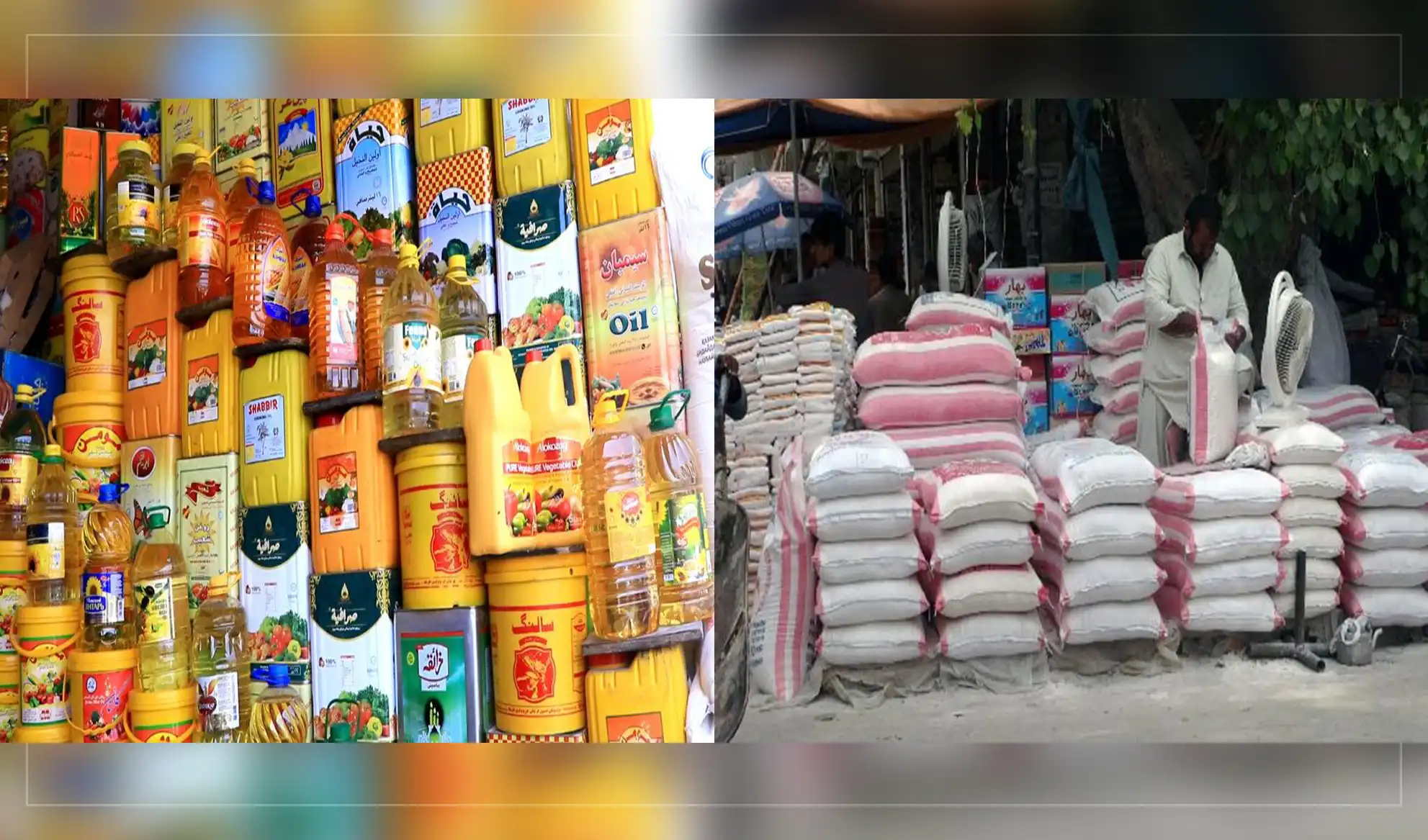KABUL (Pajhwok): Prices of flour cooking oil have tumbled by 38 percent and 32 percent respectively today, compared to the same period last year, Pajhwok’s findings indicate.
On July 23, the wholesale price of a 49 kilograms bag of Kazakh flour stood at 1,600 afs while a 16-litre tin of Malaysian cooking oil accounted for 1,700afs. On the same date last year, the wholesale price of a 49-kg flour bag was 2,600afs and cooking oil 2,500afs.
If prices of flour and cooking oil in the first four months of 2922 and 2023 are compared, an average fall of 35 percent could be seen.
Different sources linked the price reduction to shrinking in imports from various countries, meaning an improvement in the country’s trade balance. Earlier, Afghanistan had trade links with a few neighbouring countries.
Previously, flour was imported only from Kazakhstan and Pakistan, but now the staple commodity also comes from Russia, and Turkmenistan.
Flour price down by 38pc
Haji Gul Mohammad, a shopkeeper in the Dahan-i-Bagh area of Kabul, told Pajhwok Afghan News today he sold a 49-kilogram of bag of Kazakh flour for 1,600afs, compared to last year’s price of 2,600 afs. A 1,000afs cut per sack is obvious.
He said flour was mostly imported from Kazakhstan, with domestic produce is sold in Kabul markets.
Cooking oil rate falls by 32pc
According to a report published by Pajhwok on July 23 of 2022, a 16-litre tin of Malaysian cooking oil was sold for 2,500afs in Kabul.
Haji Gul Mohammad, a shopkeeper in Dahan-i-Bagh, said on Sunday the price of 16-litere tin of Malaysian cooking oil was 1,700afs.
Factors behind price cuts
Mohammad Amin, another shopkeeper in the same neighbourhood, said there were mostly three types of flour (Kazakh, first grade and Mazari) in capital markets.
He added: “Thank Allah, flour imports have increased and a lot of flour is coming to our country from Kazakhstan and Turkmenistan. As a result, its price has fallen, compared to the past.”
“Before the spread of Covid-19, the price of a 16 litre tin of ghee was around 1,100afs. After the political change in the country, it soared to 2,900afs. But thankfully, it has slumped to 1,700afs. The cooking oil rate should decrease further.”
Khan Jan Alkozai, first deputy head of the Afghanistan Chamber of Commerce and Industry, said: “Our annual consumption of flour and wheat is approximately 6.5 million tonnes. We import 50 percent of flour from Kazakhstan, Uzbekistan and Iran.”
He pointed out: “We consume 1,500 to two 2,000 tonnes of oil per day. Of this, 400 tonnes are produced in the country and the rest imported from Russia, Kazakhstan, Malaysia, Indonesia and Dubai.”
He linked the cut in flour and cooking oil prices to global market trends.
“The prices are being monitored by the Islamic Emirate. Although rates of some commodities are a little high, the overall situation in the country is under control,” he claimed.
Meanwhile, Ministry of Commerce and Investment spokesman Akhundzada Abdul Salam Javad told Pajhwok: “About 6.5 million tonnes of flour and wheat are needed daily in our country, which itself produces 4.3 million tonnes while the rest is imported.”
According to the source, flour is currently imported from Kazakhstan, Uzbekistan, Turkmenistan and Russia.
He said rates were monitored in markets across the country daily and monitoring teams from different institutions were working to prevented price list violations.
Javed added the ministry’s analysis and evaluation showed the prices of most food items were lower in Afghanistan than in neighboring countries.
sa/mud








GET IN TOUCH
NEWSLETTER
SUGGEST A STORY
PAJHWOK MOBILE APP